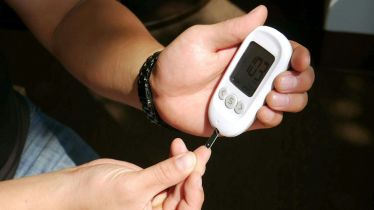Blood sugar is the primary source of energy that fuels the human body. When these glucose levels drop too low, a condition known as hypoglycemia is triggered. It can trigger dizziness, fatigue, confusion, and even fainting. Maintaining balanced glucose levels is essential for overall health, as it keeps the brain sharp, muscles active, and helps perform daily activities.
A query on Quora read, “My HbA1c is 7, fasting sugar is 130, and post-meal sugar is 200. I’m not on medication, but I feel low and shaky 4 hours after meals. What should I do?”
Answering this, The Indian Express reported that the HbA1c or glycated hemoglobin test measures average blood sugar levels over the past two to three months. The number 7, as shared in the query, might point to early or mild diabetes. “Ideally, this value should be below 5.7 per cent,” explained Dr Negalur to Express.
What is fasting blood sugar?
Fasting blood sugar refers to the sugar in your blood when you are on an empty stomach. Typically, it should be below 100, which the Internet user reported was 130 mg/dL. On the other hand, post-meal (PP) sugar should be below 140, which was found to be significantly higher at 200 mg/dL. “These values show that your body isn’t managing sugar well, even though you’re not on medication,” noted the Express report.
What does this mean?
The doctor explained to The Indian Express that this pattern points to reactive hypoglycemia. After consuming a high-carbohydrate meal, blood sugar levels take a sudden surge, as indicated by the 200 reading. The body then releases extra insulin to bring the sugar down.
However, this response can go too far, causing sugar levels to dip sharply three to four hours later. This drop often triggers symptoms like shakiness, dizziness, and sweating, which are typical signs of low blood sugar.
Things to watch out for
People who have repeated reports of blood sugar spiking should monitor the fluctuations between post-meal, fasting, and HbA1c levels. Indicators such as fatigue after a short period, hunger, and triggering sweet cravings can suggest insulin resistance.
Eating healthy and balanced meals and cutting out added sugar like refined carbs, carbonated drinks, and keeping a track of blood sugar levels is advised.
